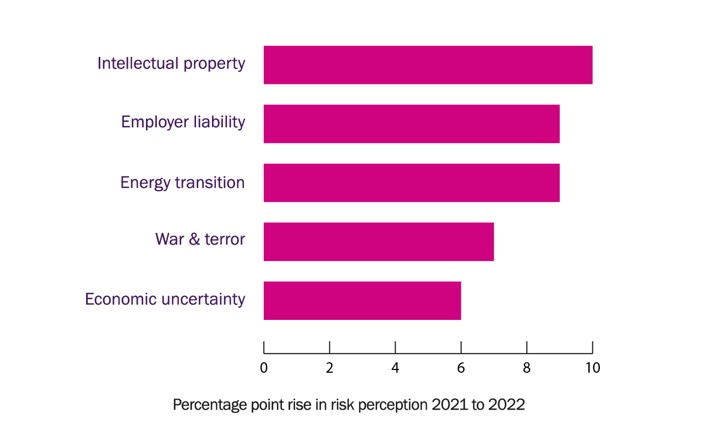Half of UK senior decision makers are prioritising growth in their organisation while one in five are prioritising the reduction of carbon emissions, according to the BSI’s annual Net-Zero Barometer Report.
While the proportion focused on carbon reduction represents a sizeable minority, many business leaders continue to find it hard to think about the net-zero transition in a context where the UK economy slowly recovers from the effects of the pandemic and businesses try to address supply chain issues, inflationary pressures and labour shortages.
Just a fifth of those polled confirmed that they were fully aware of what net-zero targets mean in practice for their organisation.
The survey of 1,000 senior decision makers and sustainability professionals did find a desire and an optimism that the UK can and will achieve its net-zero goal. The majority of those surveyed (71%) had already set targets to meet net-zero, and 78% were more convinced post-COP26 that reaching net-zero targets was possible. These numbers represent a considerable change since the organisation conducted its first poll one year ago, when just 40% of organisations had made a net-zero commitment and a further 31% were “considering it”.
Scott Steedman, director-general, standards at BSI said: “The COP26 summit in Glasgow and media coverage around that showed that many businesses are gearing up for the net-zero transition, seeing competitive advantage in becoming more sustainable. On the other hand, business leaders are also having to deal with supply chain challenges, rising energy costs, labour shortages and high inflation. There is a big risk that industry overlooks the net-zero transition in their quest for economic growth or even simply business survival.
“These pressures could easily create an either/or narrative for both businesses and consumers, a choice between cutting costs or cutting carbon. However, the evidence suggests businesses can do both, cut costs and cut carbon, and international standards are a prime tool to achieve this."
Cost remains a significant barrier to implementation for many organisations, according to the BSI's report. Almost half of decision makers (45%) cited cost as a barrier, clearly making it the leading challenge for organisations looking to reach net-zero, above supply chain (29%) and regulation (25%). Almost two-thirds (65%) of decision makers say they have accelerated efforts to operate at net-zero as a result of the pandemic. There is a willingness to collaborate and learn to meet targets, with nearly three-quarters of those surveyed saying their organisation is getting guidance from external sources, and 46% reporting that they would like more support.
“As businesses become more efficient and self-sustaining, they become more resilient and their exposure to global events, whether supply chain uncertainty or energy prices, is lessened. Acting to address their social responsibilities will help to boost recruitment and retention. Collaborative working with other organisations can help reduce the cost of the net-zero transition," Steedman added. “Fundamentally, businesses should take a strategic view of the opportunities for growth and cost-savings that will come from building a decarbonised, sustainable organisation. Net-zero is a huge challenge, but also a huge opportunity.”
Printed Copy:
Would you also like to receive CIR Magazine in print?
Data Use:
We will also send you our free daily email newsletters and other relevant communications, which you can opt out of at any time. Thank you.











YOU MIGHT ALSO LIKE